“Big Savings: How to Refinance Your Jumbo Home Loan“
If you have a high-value home and need a large mortgage, you may have opted for a jumbo home loan. While jumbo loans can provide you with the funds you need to purchase a luxury home, they often come with high-interest rates and a large monthly payment. Refinancing your jumbo home loan can help you lower your interest rate, reduce your monthly payment, and save you money in the long run. In this blog post, we’ll explore the pros and cons of refinancing a jumbo home loan, the loan amount needed, and how soon after closing on your mortgage you can refinance.
Pros and Cons of Refinancing a Jumbo Home Loan
- Lower interest rates: One of the biggest benefits of refinancing a jumbo home loan is that you may be able to lower your interest rate. This can result in significant savings over the life of your loan.
- Lower monthly payments: Refinancing a jumbo loan can also help you lower your monthly payment. With a lower interest rate, your monthly payment will be reduced, leaving you with more money each month.
- Consolidate debt: Refinancing a jumbo loan can provide you with the funds you need to consolidate debt, such as credit card debt or other loans. This can help you save money on interest charges and simplify your finances.
- Change loan terms: Refinancing your jumbo home loan can also allow you to change the loan terms, such as the length of the loan or the type of interest rate.
Cons:
- Closing costs: Refinancing a jumbo loan can come with high closing costs, which can offset any savings you may have gained from refinancing.
- Higher loan amount: Since jumbo loans are for larger amounts than traditional mortgages, refinancing your jumbo loan will require a higher loan amount. This can result in a higher monthly payment.
- Qualification requirements: Refinancing a jumbo loan can be more difficult than refinancing a traditional mortgage. You may need to meet stricter qualification requirements, such as a higher credit score or lower debt-to-income ratio.
Loan Amount Needed
The loan amount needed for a jumbo home loan refinance will depend on the amount of equity you have in your home, the value of your home, and the terms of your new loan. Generally, you’ll need to refinance at least $417,000 to qualify for a jumbo loan refinance. However, this amount can vary depending on your lender and the current market conditions.
How Soon After Closing on Your Mortgage Can You Refinance?
There is no set time frame for when you can refinance your jumbo home loan after closing on your mortgage. However, you’ll need to have built up enough equity in your home to qualify for a refinance. This usually takes several years, depending on your payment history and the housing market. Additionally, it’s important to note that refinancing too soon after closing on your mortgage can result in penalties or fees.
If you are a homeowner with a jumbo home loan, you may be paying a significant amount of interest each month. Refinancing your jumbo home loan can help you save money in the long run by lowering your monthly payments and interest rates. In this blog post, we will discuss how to refinance your jumbo home loan and potentially save thousands of dollars.
Understand What a Jumbo Home Loan Is
A jumbo home loan is a type of mortgage that exceeds the conforming loan limit set by the Federal Housing Finance Agency (FHFA). These loans are often used to purchase high-end properties and are considered a higher risk for lenders due to their size. The conforming loan limit for 2021 is $548,250 for most areas in the U.S. If your home loan exceeds this amount, it is considered a jumbo home loan.
Evaluate Refinance Options
When refinancing your jumbo home loan, there are two main options: a rate-and-term refinance or a cash-out refinance. A rate-and-term refinance allows you to change the interest rate or loan term, while a cash-out refinance allows you to take out cash based on the equity in your home.
A rate-and-term refinance is typically the best option for homeowners looking to lower their monthly payments and interest rates. This type of refinancing can also help shorten the length of your loan and potentially save you money in interest over time.
Check Mortgage Rates
Mortgage rates fluctuate constantly, so it is important to check rates regularly to see if there is a lower rate available. Lower rates can help you save money on interest over time and reduce your monthly payments.
Consider Closing Costs
Refinancing your jumbo home loan comes with closing costs, which can range from 2% to 5% of the loan amount. These costs can include appraisal fees, title fees, and origination fees. It is important to factor in these costs when deciding whether to refinance and to make sure that the savings from refinancing outweigh the closing costs.
Understand Loan-to-Value Ratio (LTV)
The loan-to-value ratio (LTV) is the ratio of your loan amount to the value of your property. Lenders use this ratio to determine the risk of lending to you. A lower LTV generally means a lower interest rate and fewer fees. When refinancing your jumbo home loan, it is important to understand your LTV and try to keep it below 80% to get the best rates and terms.
Work with a Jumbo Loan Specialist
Refinancing a jumbo home loan can be a complex process, so it is important to work with a mortgage professional who specializes in jumbo loans. They can help you navigate the process and find the best refinancing options for your specific financial situation.
Conclusion
Refinancing a jumbo home loan can help you save money on interest charges, lower your monthly payment, and simplify your finances. However, it’s important to weigh the pros and cons before making a decision. Consider factors such as closing costs, qualification requirements, and the loan amount needed before deciding to refinance your jumbo home loan. By doing your research and working with a trusted lender, you can make an informed decision and potentially save thousands of dollars in the long run.
(Review our Refinance Calculator to consider if a Refinance is the best option for you. Also, before the refinance process, remember to check your middle credit score at Middle Credit Score® to ensure your middle credit score, which is the approval credit score most lenders use, is the strongest it can be. Doing so allows consumers to avoid lenders’ guidelines which will often charge higher fees, points, and interest rates with a lower-than-average middle credit score. Plan ahead with MiddleCreditScore.com.)






